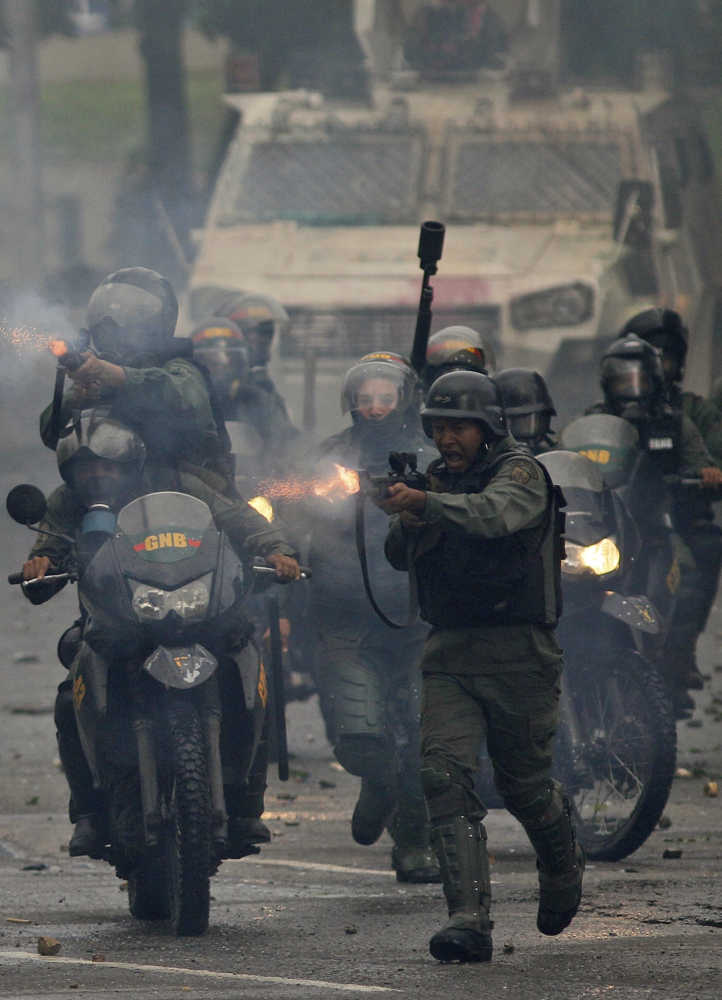If you haven’t been paying attention to foreign affairs much of late, that’s understandable, as U.S. domestic politics have certainly been tumultuous enough for the past six-plus months.
If you have been monitoring global events, you might have been zeroing in on tensions with North Korea or Russia, assuming that those should be at the top of this country’s agenda. If you did, that’s also certainly understandable, as that seems to occupy the lion’s share of foreign affairs coverage in the U.S. media today. However, you’d be wrong. There’s a simmering crisis involving a major American trading partner in the Western Hemisphere that the media isn’t covering nearly as thoroughly as it should: the imminent collapse of Venezuela.
The crisis in Venezuela really began under the previous president, Hugo Chavez, who imposed his vision of socialism on the country. He took the profits from the country’s oil exports and invested them towards his goal of reformulating Venezuelan society, which helped lead to an economic crisis of massive proportions. This led to massive protests, especially under his equally corrupt but far less charismatic successor, Nicolas Maduro. Thanks to Maduro’s incompetence, the opposition took control of parliament several years ago. Rather than listen to the will of the people, however, Maduro ignored the election results.
Currently, a constitutional assembly packed with his supporters through a rigged election is working to end democracy in the country. They removed the country’s chief prosecutor, a top critic of the president, from power and declared themselves the top governmental body in the country. Maduro, meanwhile, is working feverishly to stifle dissent, arresting and killing opposition leaders.
Now, to be sure, Venezuela has had its share of political crises before. Economic instability has led to coup attempts in the past, and Nicolas Maduro is not the first dictator in the country’s history. However, for 40 years before the rise of Hugo Chavez, the country had enjoyed democracy and – for the most part – economic stability, thanks to its oil exports. Even after Chavez pushed through a new constitution in 1999, he allowed some semblance of democracy to persist; Venezuelans actually rejected his attempt to expand his powers in 2007. Maduro seems intent on stripping all of those semblances aside and assigning himself absolute power.
The United States is, rightly, condemning Maduro’s actions, and is imposing sanctions against individual members of his regime. We have clear moral reasons to act against a regime that is violating the human rights of its citizens, but there are strategic reasons to act as well. Venezuela is a major power in the region, and instability there could undermine regional stability, returning the continent to the days of coups, dictatorships and revolutions. While it may be too late to prevent an all-out civil war in Venezuela, it may not be too late to prevent it from spreading.
Fortunately, the United States has a lot of potential sway here. We are Venezuela’s major trading partner, by far, accounting for almost a quarter of both its imports and exports. In other words, trade with the U.S. is the backbone of the Venezuelan economy, but that’s hardly the case in reverse. The U.S. mainly imports oil from Venezuela, and – thanks in no small part to the growth of domestic production of late – that accounts for only about 6 percent of our supply. So we could completely cut off trade with Venezuela without doing crippling damage to our own economy.
However, the U.S. should tread cautiously there: In the past, sanctions have propped up enemy regimes by giving them the perfect foil. Maduro already paints the U.S. as an enemy, so he could benefit from sanctions. Sanctions spectacularly failed to lead to regime change in countries like Iraq, North Korea and Cuba; there’s no reason to think that they would be successful here, either. Once you impose sweeping trade sanctions, you’ve used your biggest threat short of military intervention. That’s why the administration has thus far wisely imposed limited sanctions instead, targeting individual members of the Maduro regime.
As consumers, we can refuse to do business with Venezuelan companies. The most prominent of these locally is Citgo, which is majority-owned by the Venezuelan state oil company and minority-owned by the Russian state oil company. If you want to avoid supporting the Maduro regime, then you should certainly avoid refills at Citgo stations.
For now, other than that, all any of us can do is hope that there’s a peaceful resolution.
Jim Fossel, a conservative activist from Gardiner, worked for Sen. Susan Collins. He can be contacted at:
Twitter: @jimfossel
Send questions/comments to the editors.


